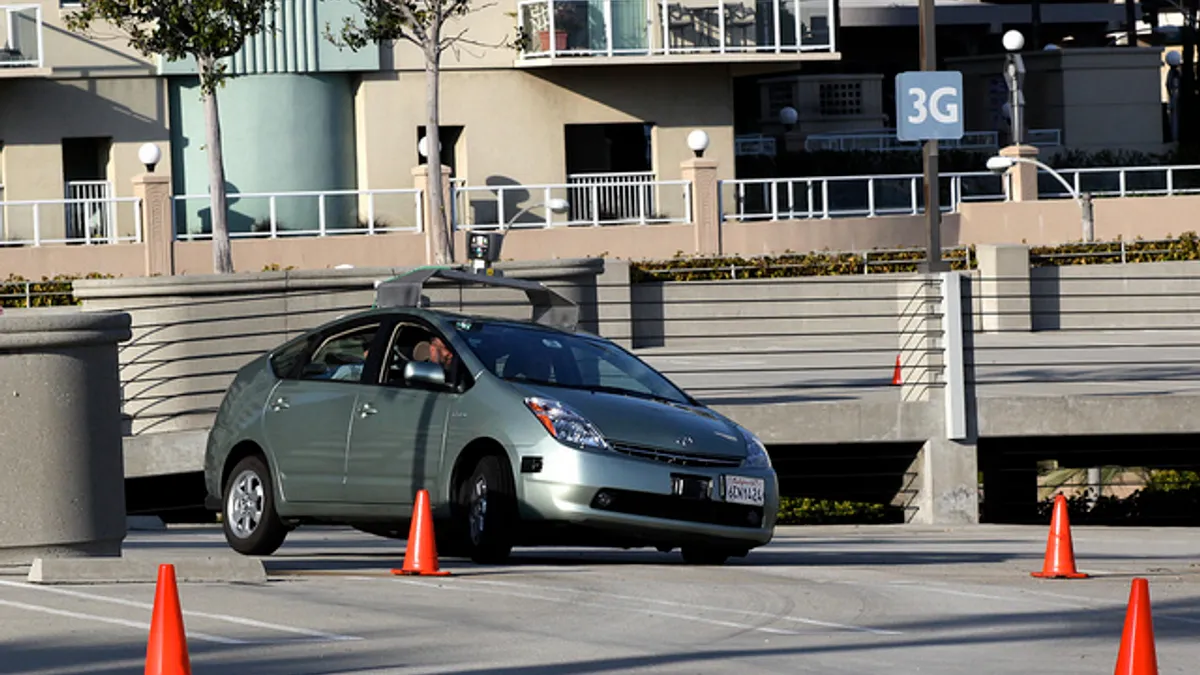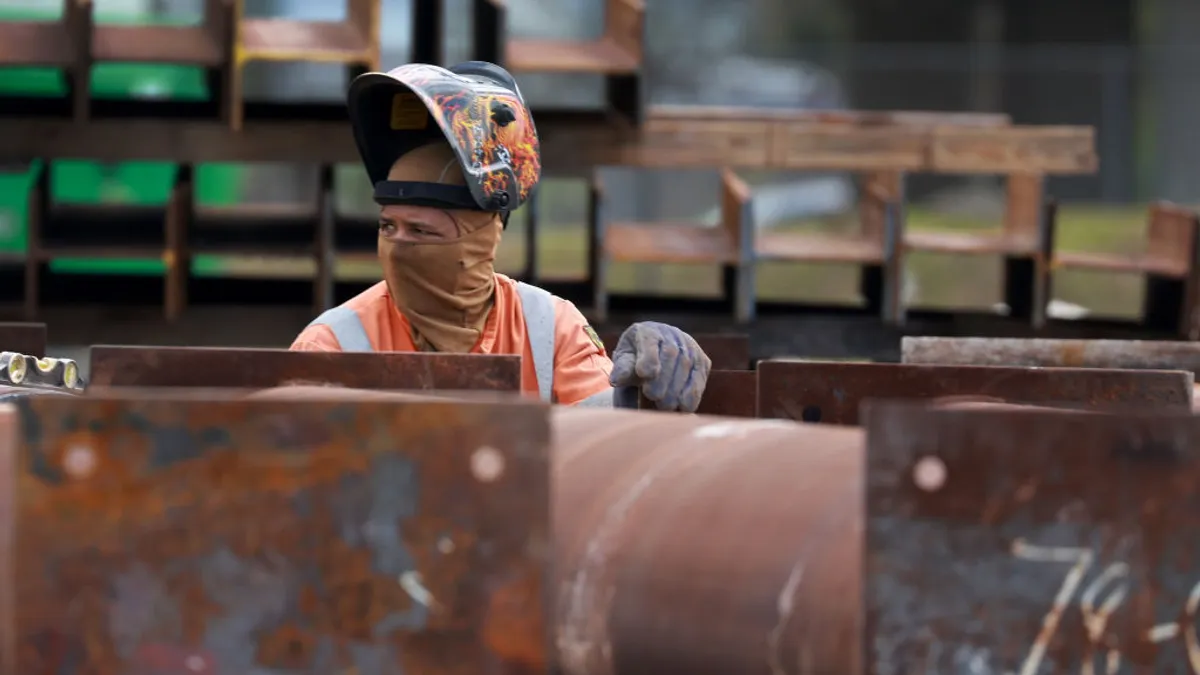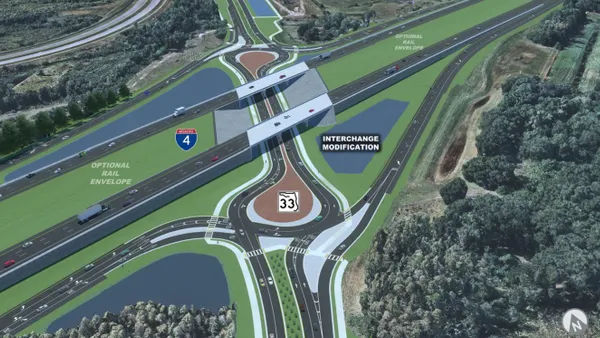Dive Brief:
-
The Rhode Island Department of Transportation has put out a request for information seeking companies that work with connected/autonomous vehicle (CAV) technology to help improve the state's transportation systems, according to Equipment World.
-
Due July 12, the RFI asks interested companies to offer details on potential partnership opportunities, safety and security programs, environmental conditions and professional training needs as well as potential impacts relative to how the state plans and executes capital projects.
- Officials hope such technology will spur economic development in the state. The RFI also asks for ideas on implementing on-demand ride-share programs and high-speed transportation.
Dive Insight:
The driverless cars of the future may not be so far off, with the U.S. and other countries rapidly developing CAV technology. In April, AECOM, along with partner organizations in the Capri Consortium, announced the development of pods on-demand (PODs), a program that would join the U.K.'s autonomous vehicle pilot project. The project could bring such technology closer to connected vehicle use on a smaller scale, in settings such as hospitals, airports, retail, business parks and tourist centers.
Among U.S. states, Georgia is making inroads in smart-highway and vehicle technology. The state is outfitting a 16-mile stretch of Interstate 85 with road sensors, solar pavement and other electronic and autonomous vehicle technologies. And in Ohio, a 35-mile corridor of Interstate 33 is being similarly outfitted with sensors to collect traffic and weather data, as well as autonomous vehicle technology.
Some companies are wading into the autonomous vehicle market, with ride-sharing services like Uber undertaking driverless pilot programs and hiring on management to oversee development in the space. Still, such initiatives are in their early stages and concerns over safety and the need for human intervention, particularly in poor driving conditions, will continue to be major focus as autonomous vehicle technology progresses.













